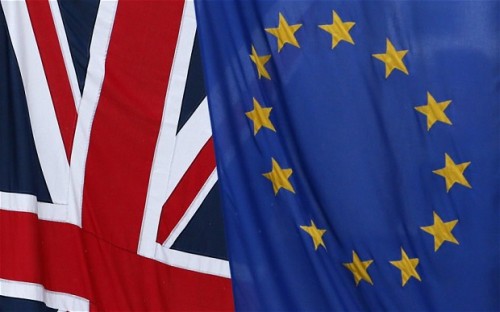By David McQueen
Politics students have just returned from a two-day visit to Brussels in Belgium where they heard South-West MEPs Clare Moody and Molly Scott Cato talk about the challenges facing the European Union at a critical time in its history.
Both MEPs were concerned that the arguments to remain in the EU were not being made effectively and worried about the lack of media coverage of important decisions, about low levels of voter engagement and about the strain the refugee crisis was placing on the political union.
Students quizzed the MEPs on the views on a range of issues and learnt about how decisions were made in Parliament.
Clare Moody talked about her role as MEP and the process of decision-making which mainly takes place through the work of cross-party committees.
Despite a much wider range of political parties being represented in Parliament - from fascist through conservative, social democrat, green, socialist and communist - proposed policies affecting hundreds of millions of Europeans were arrived at in an orderly way through negotiation and agreement around the public interest.
Clare worried that the arguments being made in Britain to leave Europe were based on emotion, and not enough people were hearing the rational reasons and political, economic and social benefits of staying.
Molly Scott-Cato’s talk covered a range of issues, but she had a good deal to say about the power of lobbyists to influence legislation, particularly through the unelected and unaccountable European Commission.
She gave several examples of where corporations set the policy agenda debated in Brussels in their own interests.
This included the weakly coordinated response to tax avoidance and in the intensive lobbying which has shaped the hugely significant Transatlantic Trade and Investment Partnership Initiative (TTIP) which, Molly argued, could erode Labour, environmental and consumer protections.
Both MEPs were frustrated that European MEP’s power was limited by having to get Commission approval for any legislation to be put before the Parliament.
Finally, Molly called on students to consider developing specialist knowledge of the European Parliament and offer this knowledge as media pundits.
This she argued could help to end the culture of ignorance and apathy amongst journalists around coverage of EU institutions and decision making.
The MEP-sponsored visit of twenty-one students accompanied by Dan Jackson and David McQueen also included a talk about the history of the European Union and group saw the main chamber where a guide explained how debates and votes were conducted and explained some of the problems translating twenty-four languages simultaneously during Parliamentary sessions.
He also offered useful advice on the skills needed to work at the Parliament and potential routes for those interested in an internship.
Following the recent horrifying attacks in Paris and related arrests in Brussels, the European Parliament was on a high security alert during the visit.
However, the centre of Brussels was still bustling with locals and visitors at attractions such as the Grande Place, a beautiful medieval square in the centre of the city which has World Heritage status.
In the narrow streets around the Grote Market the smell of freshly baked waffles and chocolate tempts passers-by, restaurants like the Fin de Siècle serve excellent Belgian food, and bars - like the infamous Delirium Café - offer a bewildering variety of ferociously strong beers.
Young people showed they were not intimidated by the terrorist attacks in Paris by sitting out and enjoying the food, drink and good company the city has to offer.
Heading back on the Eurostar and reflecting on a packed two days in the city the Politics students resolved to return to Belgium next year, take up Molly’s challenge and raise the level of awareness of the European Parliament in anticipation of the coming referendum on membership of the European Union.


